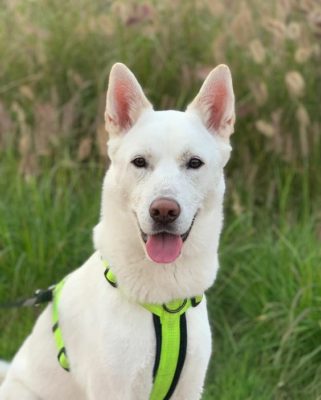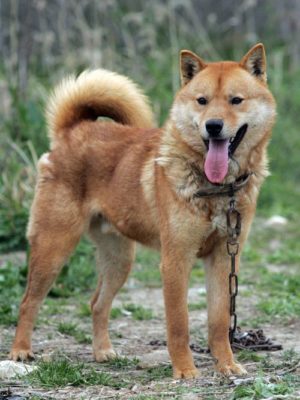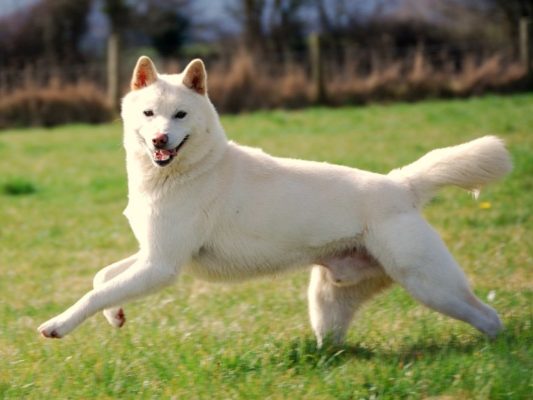Korean Jindo
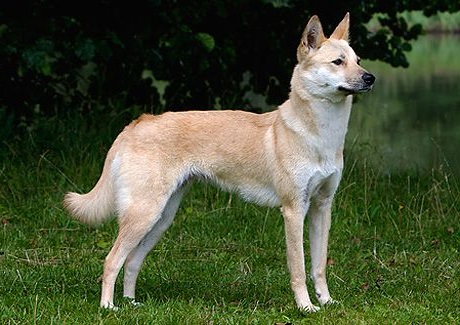
The Korean Jindo is famous for its independence and quick wit. They are hardy, can chase prey for hours, and are known as master hunters. Also proven to be unsurpassed companion dogs, get lost in the woods, or an unfamiliar place will not work, Chindo always finds their way home. Their loyalty is legendary.
Table of Contents
Breed Information
| Another Name | Jindo, JindotGae |
| Origin | Jindo Island, South Korea |
| Height | Males 50-55 cm Females 45-50 cm |
| Weight | 15-23 kg |
| Fur | Medium |
| Color | Milk color with papal, deer color, black with clear papal, gray, tiger color, white |
| Lifespan | 12-15 years |
| FCI Classification | Spitz and primitive types |
| Group | Hunting dogs, guard dogs, companions |
| Price | From $1000 |
Breed Photos
Origin History
The Korean Jindo is a kind of mystery. There is no proof of the origin of this unique breed. Cynologists claim that the Jindo (Chindokke) has existed for more than a thousand years on the island of the same name and is considered a descendant of Mongolian dogs.
It is almost impossible to become the owner of this beautiful breed outside the country. The Jindo is the pride of South Korea and a national treasure that is protected by law.
Appearance
Jindo is the owner of a very stiff and thick coat, a raised ponytail, and pointed upright ears. As a true Korean has slanted eyes! They can easily be distinguished from other spitz breeds by their specific coloring, head, and body proportions.
Varieties of Korean Jindo builds:
- Tonggol is muscular and stocky, with a strong build. The height at the withers is equal to the length of the body;
- Hudu is slender and elegant. The head, ears, and muzzle are longer than usual;
- Kakkol – a mestizo, crossed with the other two subspecies. With an elongated body and deep chest.
Character
The Korean Jindo is famous for its independence and quick wit. They are hardy, can chase prey for hours, and are known as master hunters. Also proven to be unsurpassed companion dogs, get lost in the woods, or an unfamiliar place will not work, Chindo always finds their way home. Their loyalty is legendary.
The Korean Jindo uses chindos as guard dogs, their barking guaranteed to indicate an approaching enemy or emergency.
Any unforeseen situation is not scary for this sly dog’s owner if you are mentally prepared for it. In no case should they not be kept in a closed space; otherwise, you can immediately say goodbye to all the furniture in the house and even the walls.
Jindos can’t stand water; making them go for a swim requires a lot of effort. It is not their favorite activity to walk in the rain or near the river, cross a bridge, or jump in puddles and frolic in the water.
Care
Fresh air and freedom are the natural habitats for Korean dogs. It does not feel comfortable in an enclosed space. It is best to keep the Chindo in a yard with a very high fence; country houses and summer houses are perfectly suitable. Exhausting training is a must because from boredom Korean Jindo can spoil everything around and dig under holes.
It is imperative that the Korean Jindo needs careful care for its long and thick coat. A stiff coat with an undercoat is advised to be brushed at least once a week.
Training
Training a Korean dog is mandatory and vital because its independent temperament, aggression, and wild instincts can take over. It is very important to become an authority for Chindo because only the word of the master is the law for him. Only with these qualities can one tame the willfulness of the Korean Jindo.
Active, exhausting walks in the fresh air and correct corrections will make a dog a great and faithful friend in life. Be sure not to forget to reward your dog with a treat for successfully following commands.
Common Diseases
Korean Jindo dogs are blessed with excellent health and hardly ever get sick. The common ailments from which they can sometimes suffer are:
- allergies;
- cataract;
- joint dysplasia;
- hypothyroidism.
To protect your beloved pet from disease, we recommend proper care, an examination by a veterinarian once a month, vaccinations, and periodic treatment for worms, lice, and other parasites.
Nutrition
The caloric content of Korean Jindos should be related to their weight and activity level.
Exclude dry food from the menu; it is better to dilute the diet with lean meat, fish without bones, porridges, fruits, and vegetables. They can only take food from the owner; they won’t accept anything from other people’s hands.
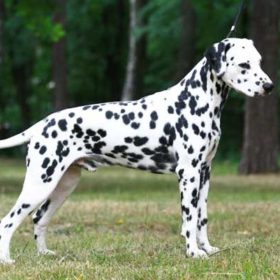 Dalmatian
Dalmatian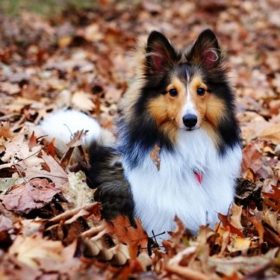 Shetland Sheepdog
Shetland Sheepdog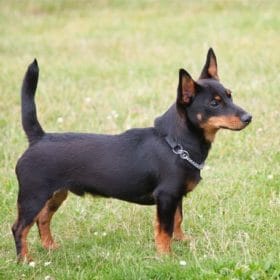 Lancashire Heeler
Lancashire Heeler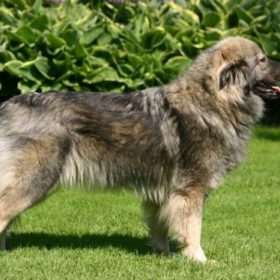 Karst Shepherd
Karst Shepherd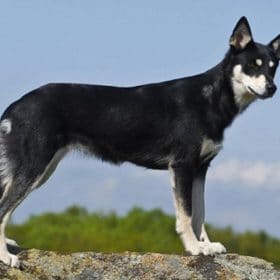 Lapponian Herder
Lapponian Herder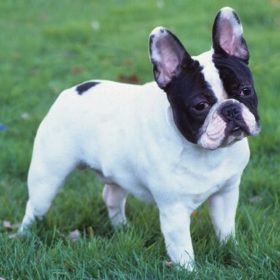 French Bulldog
French Bulldog